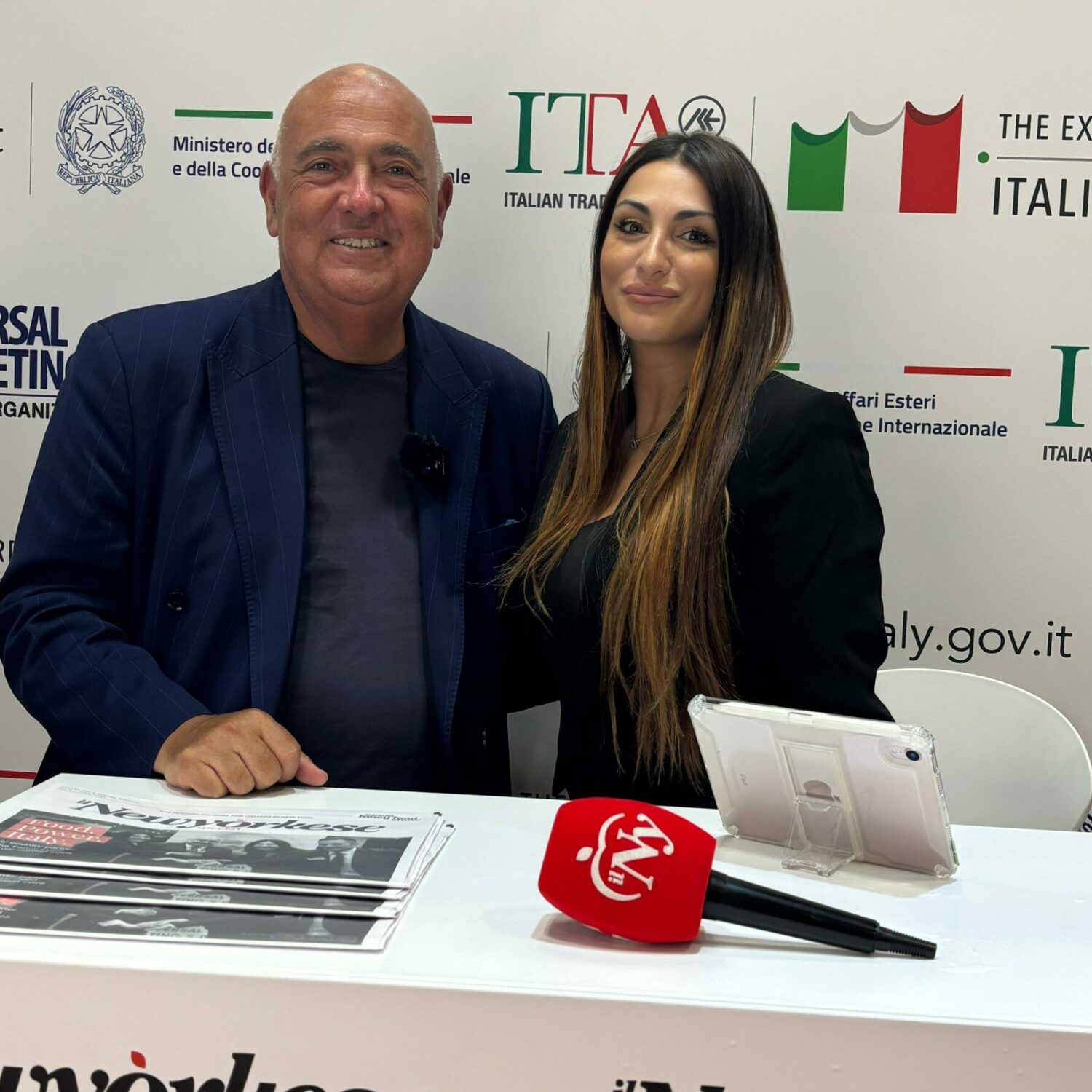From tourism to institutional communication, Marco Buschini now leads the promotion of the Ministry of Agriculture between products, culture, lifestyle and international relations. We met him at Fancy Food in New York to talk about taste diplomacy, territorial storytelling and the value – including political value – of our cuisine in the world.
Let us start with an observation. Made in Italy enjoys an outstanding reputation everywhere in the world, but sometimes it risks being reduced to a narrow range of products. Occasions such as Fancy Food, on the other hand, allow us to show the breadth and variety of our agrifood offerings. In this context, what is the role of the Ministry of Agriculture in promoting authenticity and combating the phenomenon of Italian sounding?
Made in Italy means two things: “well made” and “good.” “Well made” refers to every aspect of our know-how, while “good” refers specifically to food and agribusiness excellence. The ministry is doing the system. Perhaps for the first time, this government has managed to create an effective synthesis between all ministries that deal with Made in Italy. We did this, for example, with the Amerigo Vespucci world tour: two years around the world promoting our excellence.
And we are also doing that here at Fancy Food, in collaboration with ICE and all the Italian diplomatic representations, which play a key role in building strong relationships with the territories in which they operate.
We also came here to send a strong message: it is curious that Italian cuisine is not yet a UNESCO intangible heritage. This is something we take for granted, because cuisine is an integral part of Made in Italy. Yet it was only with this government that we realized that it was not yet recognized. We think that by gaining this recognition, we would not only enhance our cuisine even more, but we would also give luster to the other four that already are, all contributing together to make a qualitative leap on the international scene.
Today there is a lot of talk about storytelling, branding, storytelling of territories. How much do these aspects matter in promoting Made in Italy? And what role does culture-even emotion-play in building a shared imaginary around Italy, for consumers but also for entrepreneurs?
It is no coincidence that Minister Lollobrigida has chosen someone from the world of tourism as her communications manager. I have been doing institutional tourism promotion for 30 years, and I firmly believe that tourism and agribusiness should work together. Tourism is not relocatable: to see our beauty and taste our food you can have an initial approach abroad, but then you have to come to Italy.
Made in Italy is not only a product: it is also a way of life. Living Italian-style is something that deeply fascinates those who look at us from the outside. I have lived 70 percent of my professional life abroad; for 12 years I worked for the National Tourist Board. I can assure you that outside Italy there is an even higher regard for our country than we have for ourselves.
I always say, if we were even 50 percent as in love and proud of Italy as foreigners are of their countries, we would be even stronger and more attractive than we already are. Today Italy is a sexy, desirable country. For its excellence, for its culture, for its way of life.
You also talked about the minister’s presence here at Fancy Food. Can we say that events like this also have a political impact? Can cultural diplomacy affect Italy’s export and strategic positioning in the world?
Absolutely. Italy’s role in the world is changing, and it is growing. In the last three years we have seen concrete signs of this strengthening. For example, yesterday Minister Lollobrigida was the first EU minister received by the U.S. Secretary of Agriculture, Tom Vilsack. This is a strong signal of international consideration, not only for our country, but also for the tireless work the minister is doing.
Strengthening relations between Italy and the United States-and more generally between Italy and the rest of the world-means affirming our culture, our values, our vision of society. But it also means helping to build stability and growth, at a time in history marked by wars and global tensions. We need peace, we need cooperation, and each of us – starting with those who govern us – must do our part to bring it about.
We are on the last day of Fancy Food. I ask you, in conclusion, for a belly comment: what emotions do you take home from this experience?
You used a very apt expression: “of belly.” After four days here, we return to Italy not only with a fuller belly, but also with a significant emotional load.
It was four intense days, full of discussion, enhancement of our excellence, and national pride. Fancy Food is a great showcase for Italy. So: long live Fancy Food and long live Italy!
Thank you Marco for your time, for your institutional presence, and for the work you do in promoting Made in Italy in the world.
Thank you for what you do. Really, thank you from the bottom of my heart.
The article “Italian Living is Our True Made in Italy”: interview with Marco Buschini from Fancy Food comes from TheNewyorkese.

